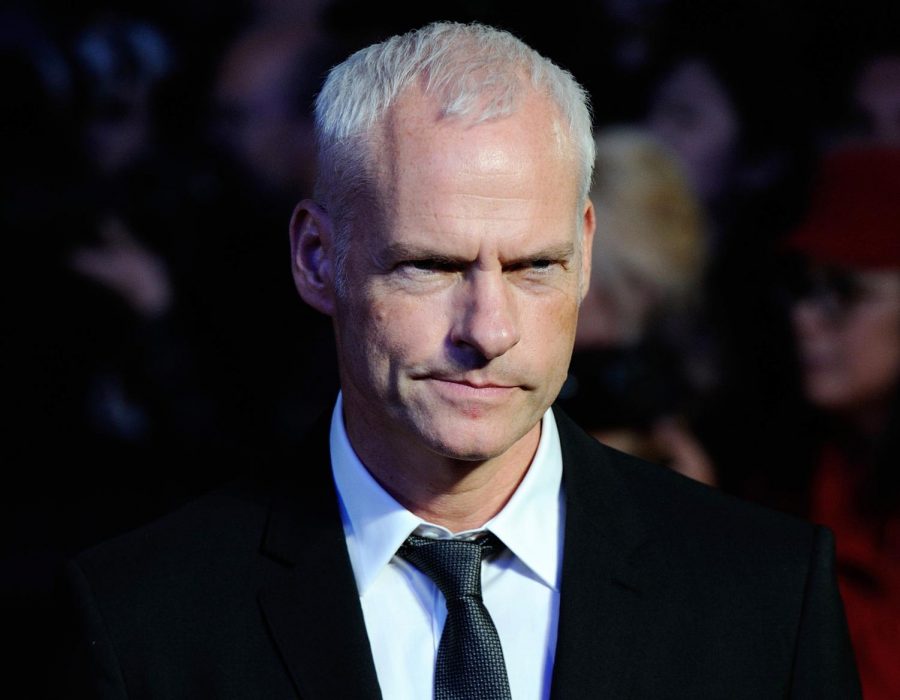Heartfelt dark comedy a success
“Three Billboards Outside Ebbing, Missouri,” directed and written by Martin McDonaugh (pictured), has a 94 percent approval rating on Rotten Tomatoes.
Dec 7, 2017
With themes of retribution and redemption coursing through its deceptively simple story, “Three Billboards Outside Ebbing, Missouri” offers a wholly satisfying depiction of loss and the often unexplored aftershocks that follow.
The film follows Mildred Hayes, played by Frances McDormand, a mother who purchases three billboards outside the titular town that are emblazoned with messages questioning the local police officers’ efforts to solve her daughter’s rape and murder.
Despite focusing on the unspeakable tragedy that gives rise to these billboards, “Three Billboards Outside Ebbing, Missouri” succeeds in deftly balancing black comedy with heart piercing drama, resulting in a refreshingly nuanced tale of morality and justice that both entertains and evokes.
Directing: 5/5
“Three Billboards Outside Ebbing, Missouri” benefits from gorgeous cinematography and direction that showcases the natural Missouri landscape and the quaint buildings that constitute the town.
Nearly every shot is perfectly framed, with director Martin McDonagh, the British-Irish playwright of “In Bruges” fame, making extensive use of his cast and their surrounding environment to create visually compelling compositions.
For example, McDonagh may switch from an emotionally revealing close-up of a character in turmoil to an evocative shot of an empty swing set. This is just one example of McDonagh’s potent ability to inject tremendous significance into otherwise meaningless objects.
In addition, “Three Billboards Outside Ebbing, Missouri” maintains a diverse visual style due to the film’s tendency to subtly and effectively utilize various shot types.
Whether it be a spectacular wide shot of the lush and hilly countryside or a medium shot framing a darkly silhouetted mother in mourning, the viewer’s interest is unlikely to subside as the engaging visuals constantly serve to reflect the narrative that unexpectedly unfolds in front of them.
Writing: 5/5
Although “Three Billboards Outside Ebbing, Missouri” boasts some truly unforgettable camerawork, the film’s greatest strength is undoubtedly its simultaneously acerbic and affecting screenplay.
Indeed, the film performs an extremely impressive balancing act that allows tragic situations to momentarily give way to instances of dark humor. To be sure, much of this humor stems from Mildred Hayes’ painfully blunt and off-color exchanges with the rest of the townspeople.
Finally, the film’s use of cynical, rude and even filthy dialogue never overpowers the heartrending circumstances that situate the film’s narrative and, instead, actually complements this central tragedy with brief — and necessary — moments of respite.
Acting: 5/5
Given the emotionally demanding nature of the screenplay, the film’s successful execution was largely dependent on the cast’s ability to render those emotions on screen through their respective portrayals.
Fortunately, “Three Billboards Outside Ebbing, Missouri” features some of the most powerfully acted and altogether moving performances in any film released this year.
McDormand should be paid particular praise for her captivating turn as Mildred Hayes, the grieving mother who will go to any lengths to seek out justice for her deceased daughter. As mentioned earlier, McDormand’s portrayal is marked by an unrelentingly irreverent — and hilarious — mean streak.
However, the reason McDormand’s performance is such a success is that she is also able to conjure up feelings of real sadness and heartbreak through both subtle body language and impassioned lines of dialogue, resulting in a truly multi-layered character study.
Woody Harrelson is also a standout as Sheriff Bill Willoughby, whose rough exterior is quickly set aside to reveal a deeply compassionate man who loves his family and cares about his community. Willoughby’s interactions with his daughters are especially poignant, as Harrelson brings an unexpected degree of warmth and vulnerability to his character.
Among the rest of the supremely talented cast are Sam Rockwell as the dimwitted and violent Officer Jason Dixon, Caleb Landry Jones as the meek and kindhearted Red Welby and Clark Peters as Abercrombie, the no-nonsense police chief.
Overall: 5/5
“Three Billboards Outside Ebbing, Missouri” succeeds on multiple emotional levels, as its tendency to elicit belly laughs is only matched by its ability to genuinely move viewers to tears.
Indeed, the film’s narrative thrust remains deeply rooted in the tremors of loss and the never-ending turmoil of grief. And yet, surprisingly enough, “Three Billboards Outside Ebbing, Missouri” ultimately seems to offer a life-affirming message that touts the restorative effects of redemption and the unexpected kindness that can emerge from chaos.









